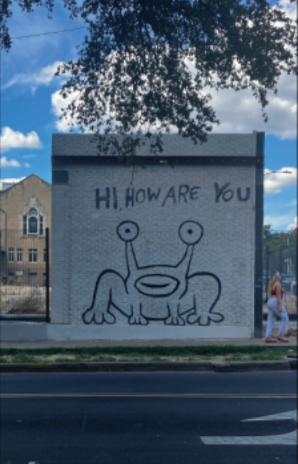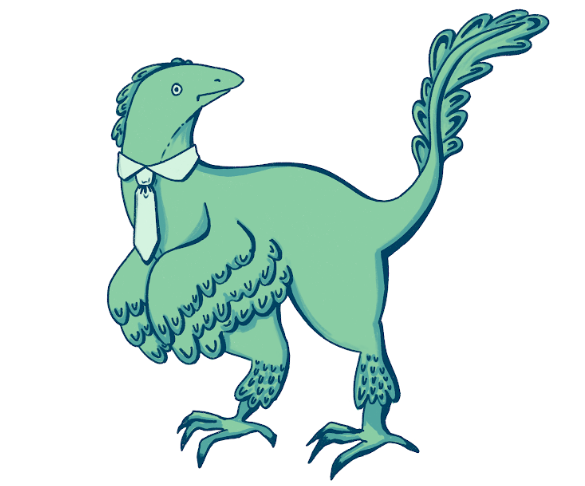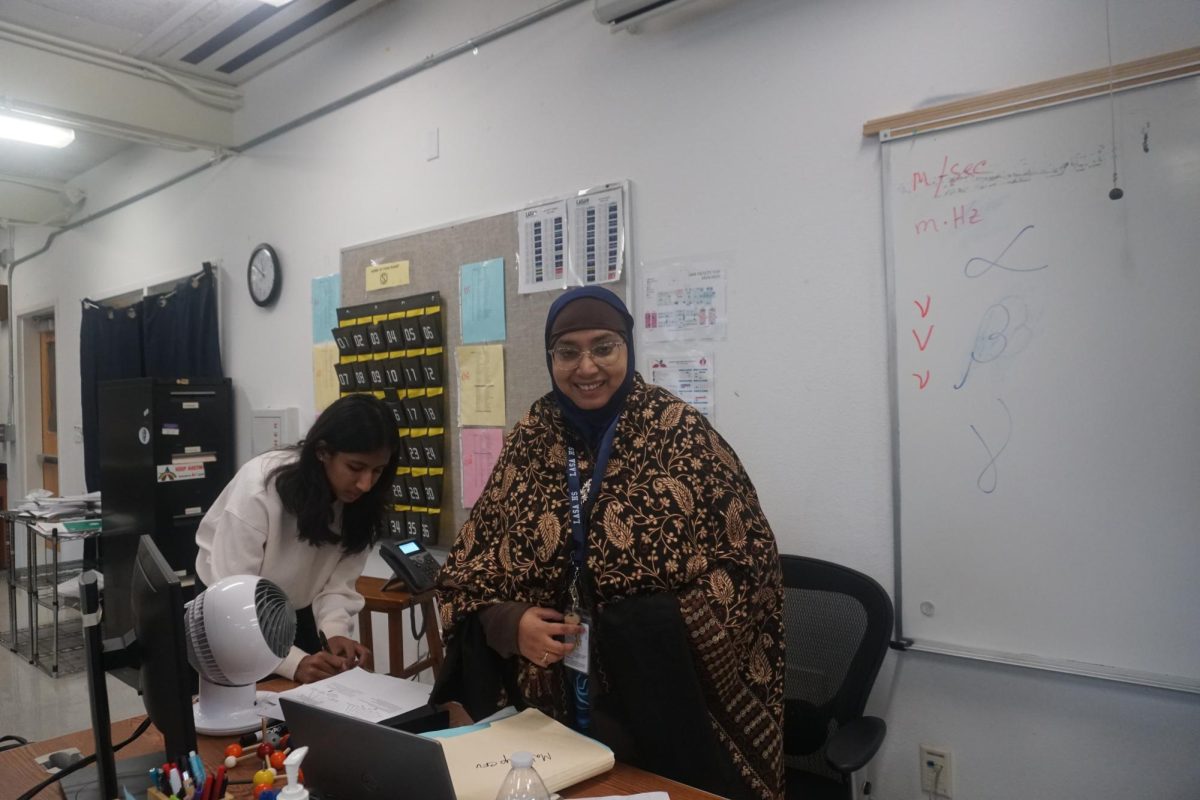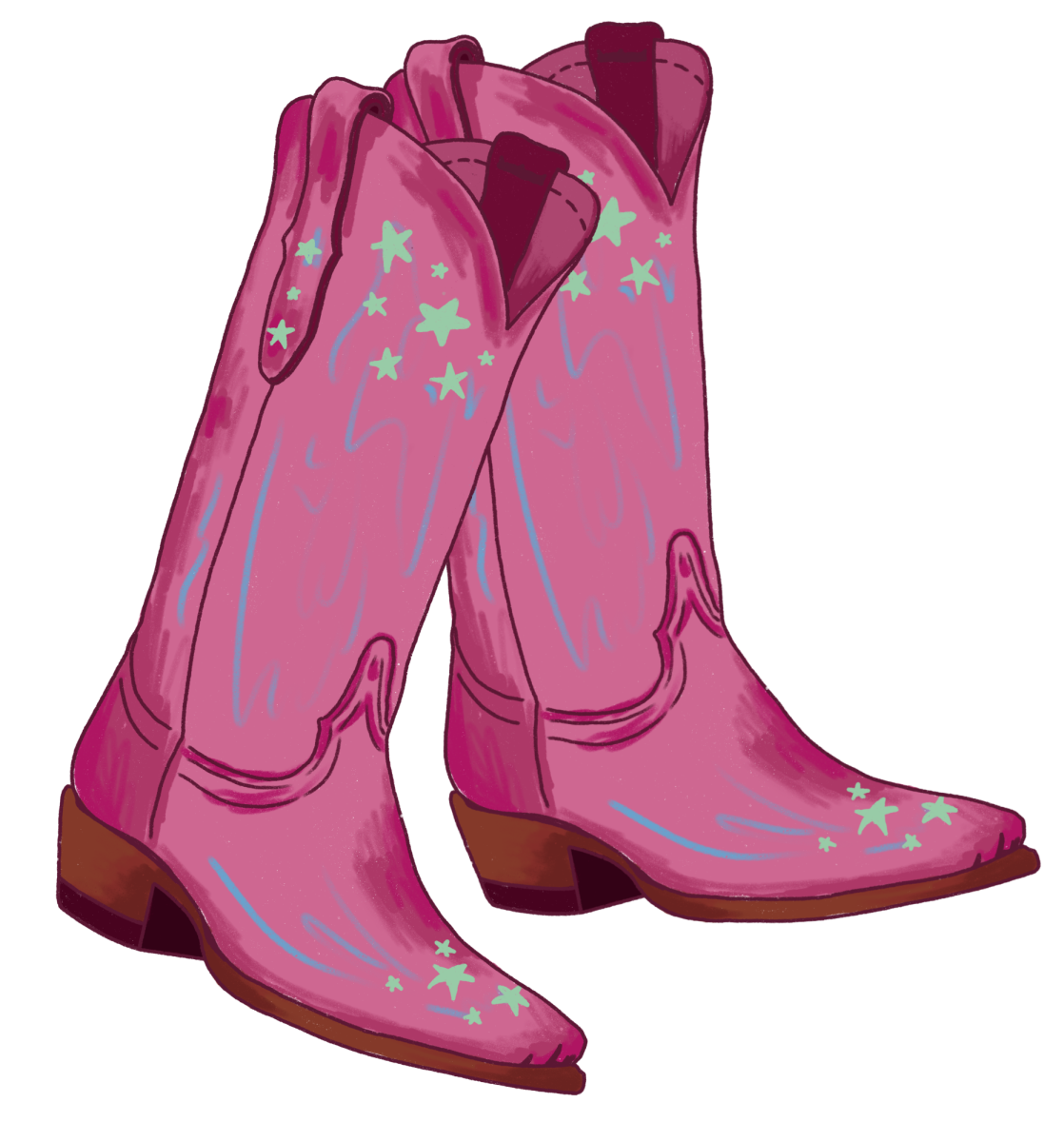Austin is growing up: data on the City of Austin website shows that it’s no longer the year 2000, and Austin is no longer a town of 650,000 people walking along Barton Springs and exploring the costumes inside Lucy in Disguise with Diamonds. Its ever-changing skyline has grown increasingly clustered, with a growing number of new buildings constructed each year, yet it still maintains an unobstructed view of the capital. The streets that used to be filled with familiar faces have lost their local touch. The Frank Erwin Center has been brought down to make way for the Moody Center and South Congress Bookstore on Kerbey Lane. According to Macro Trends, the transforming city now has over two million citizens and high-end luxury stores where local small businesses had previously. Austin has grown up, and this generation of Austinities has grown alongside it. 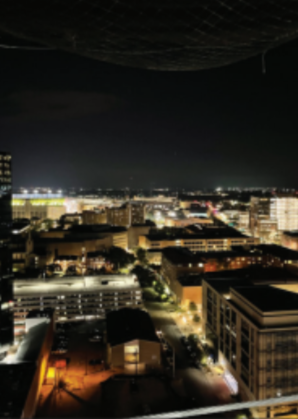
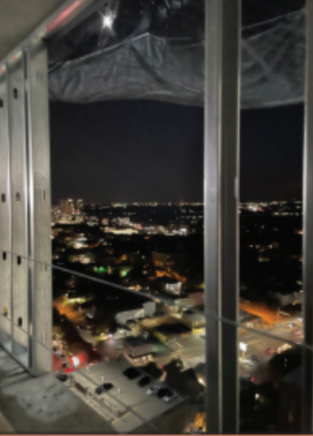
Austin is the second fastest-growing city in the United States, and according to World Population Review, the town has experienced a 2.06% population increase since 2023, with over 2.2 million citizens living in the city today. Today, population-wise, Austin is the 12th largest city in the country. The growth outpacing the city is evinced by increasingly congested streets and house prices reaching record highs. Neighborhoodscout reported that since 2014, home values have increased by 123%, averaging an 8.36% increase annually.
The fast-paced growth of the city has significantly affected South Congress. According to Allison Faust, co-owner of South Congress Books, the street’s rent has increased as buildings are sold to developers, leading her to witness firsthand the long-term tenants leaving the street and moving to affordable locations. However, the street was quite the opposite at the beginning of the business.
“It was a cool place to be and drew some tourists, but there was a vacant lot next door and another across the street,” Faust said. “We had plenty of slow days, and people seemed surprised to find us there.”
The business was created by Sheri Tornatore, who began working with selling reused books 30 years ago online. Under the username “Tornatore,” she built a five-star rating online, leading her to open the bookstore.
“As Austin steadily grew in population and popularity as a tourist destination between 2011 and 2020, lots of new businesses and buildings filled in, and we grew busier every year until the pandemic hit,” Faust said. “That’s when Austin exploded in growth, and our building was sold to a developer who wanted to quadruple our rent.”
South Congress Books isn’t the only business to deal with rent increases in the area. Long-time businesses, Mi Casa Gallery, Good Company, and Sunroom, are all facing similar problems and will either relocate to affordable locations or will have to simply close their stores. This has left small shops struggling to make their overhead—the amount it takes to run their business at a manageable level.
“We moved almost two years ago to our current location on Kerbey Lane, and it’s been hard to stay on people’s radar,” Faust said. “Small niche businesses like ours are struggling with high overhead and are getting pushed into less desirable locations or closing altogether.”
Junior Niamh Catterall has lived in Austin her whole life. Growing up between South 1st Street and South Congress, she’s seen the change in the neighborhood through business, food, and culture.
“My favorite restaurant, up until it closed a couple years ago, was Enoeca,” Catterall said. “It was on South Congress, maybe like two blocks from my house and it was an Italian restaurant. It was affordable, it was very Austin, an original kind of restaurant.”
Enoeca closed in the summer of 2022 after operating for 17 years. In its place, the owners opened Chapulín Cantina, a traditional Mexican restaurant drawing heavily from Oaxaqueño cuisine.
“All of the affordable restaurants on South Congress are going away,” Catterall said. “But that’s not what Austin needs. Austin needs good trashy Tex-Mex because that’s what we are.”
One historical departure from South Congress was the closing of Lucy in Disguise with Diamonds. The store opened in 1986 and was a large costume shopping site for many Austinites. According to the Austin American-Statesman, even Bob Dylan once spent $7,000 at the store.
“I got my first non-homemade Halloween costume from there,” Catterall said. “I got red sparkly high heels, which I took off by the end of the night. I was ten years old and I was Dorothy from the Wizard of Oz. Yeah, it was cute.”
Notwithstanding its impact, the store closed at the end of 2022. In a statement given to the Austin American-Statesman, the owner and founder, Jenna Radtke, explained she chose to sell the building for 1.2 million dollars after 38 years of business left a mark on the fabric of Austin. For customers like Catterall, this closure deeply impacted them.
“I knew the workers in there,” Catterall said. “I knew where my shoe size was on that rack in the back room. I could find anything in that store because it was so fun to go into.”
According to the business manager, Jerry Durhman, the decision to sell was ultimately made due to the new plans for South Congress and the loss of local vendors following the pandemic. The store announced its closing through a social media post and a large closing banner that hung above the store.
“I drove by the banner that announced its closing every time I went home,” Catterall said. “It just wasn’t real.”
Down the road, Tesoros Trading Company also closed its doors in the summer of 2022 after 15 years of business. Both of its locations will be replaced by Tecovas, a cowboy boot store with 35 locations nationwide.
“As a longtime Austinite, I feel sad,” Faust said. “To see so much generic development that could be in any city in the USA replacing unique neighborhood businesses that struggle to relocate.”
South Congress now holds many high-end stores like Hermes, Alice & Oliva, and Reformation. Each store has at least 30 locations worldwide, with Hermes having over 200.
“I think Austin’s bubble has burst while retail landlords are holding firm to high prices that aren’t sustainable or realistic,” Faust said. “It’s bound to change. Change is inevitable. But in the meantime, it’s a tough environment for small local businesses until things reset.”
Chloe Cardinale is a LASA Advanced Placement (AP) Seminar teacher, an elective AP class focused on research. This year, the class’s focus is on Austin. Cardinale has seen firsthand the substantial changes Austin has undergone over the years, pointing out the city’s growth in both population and industry. She remarked on how these changes have reshaped the city’s identity.
“The population size would be one of the biggest indicators that has changed,” Cardinale said. “The amount of business and industry here has substantially changed and grown. Also the culture of Austin, which would be very tangible, but maybe less like data points, [has changed].”
Cardinale explained that the city’s expansion is still going strong. According to her, the influx of businesses is specifically from the state’s low-income taxes.
“I don’t see [the change] stopping, for sure, especially not because of all the businesses with California and all over,” Cardinale said. “Lots of businesses are coming here from states that have a state income tax. So, Austin, Texas specifically, is trying to promote that growth.”
From I-35 expansion to racial segregation, AP Seminar covers a wide range of changes that are affecting Austin. Students are researching and discussing the effects businesses and population demographics have had on the city throughout its history.
“There hasn’t really been a way in which Austin hasn’t changed,” Cardinale said. “[Now] we’re in the top 10 biggest cities in the country. So just that alone has made us an international city that it did not used to be, or at least not as well known.”
The growth in Austin has affected more than just one neighborhood. Senior Adele Tversky has lived in Mueller for as long as she can remember. However, after leaving the city for a few months due to the pandemic, she observed new developments throughout the neighborhood after her return.
“Mueller is crazy and growing all the time,” Tversky said. “Over COVID-19, we were gone and we were in Colorado and coming back and just over the course of a year the neighborhood had already doubled in size and all these new buildings had been built.”
After decades of construction, Mueller finally saw an end to its construction, having built 1,700 affordable housing units over the past few years. However, according to Community Impact, the city plans to replicate the neighborhood’s success by creating 60,000 affordable housing units by the end of 2028.
“It was actually insane,” Tversky said. “We moved to a different place in Mueller around 2010. So that new place has a lot of development around it. We were around the lake park and Albridge Street that has a lot of new apartments going up.”
Tversky believed live music has also become a significant change factor in Austin. She has explicitly seen changes throughout venues. For example, in September of this year, the Frank Erwin Center was officially demolished and replaced by the new Moody Center. Throughout its history, the music center had performances from famous musicians such as David Bowie and Bob Dylan.
“It’s not so great how some of my favorite smaller venues’ prices keep on going up and up,” Tversky said. “Which makes sense because they can’t pay their rent.”
For both the music scene and businesses, Tversky and Catterall stated that Austin has lost some of its culture. The city has adapted to its growth and become mainstream in multiple ways.
“Sometimes it feels like, like a different city driving through downtown where all the places I used to know,” Tversky said. “Or going down South Congress and there’s all these stores, like Hermes is there. What are they doing there,where there used to be all these local shops?”
Catterall felt that the growth has affected her familiarity with the city– not just the buildings and the stores, but the people as well. Throughout her neighborhood, many new tenants moved in over the past decades.
“It was small and I just knew it as my home and I recognized every part of it,” Catterall said. “I knew the people in it. It’s not really the same like that now.”
Austin has also become the new home for many major corporations, with large companies like Tesla, Google, and Apple moving into Austin in recent years. Tversky believed growth could provide opportunities for the city.
“There’s people who have the opportunity to improve those issues,” Tversky said. “And I hope they do.”
One major issue in Austin continues to be transportation. According to KXAN news, I-35 construction, which has been a big factor in ongoing traffic, will continue until 2032 after starting this year. Cardinale commented that many of her AP seminar students strongly believe that public transport should be improved to respond to the increase in traffic after looking at a variety of sources and discussing it with each other.
“It’s really expensive,” Cardinale said. “Everything’s really expensive. There’s a lot of positives and negatives, but I wish more than anything. We would invest in public transportation so that we could take more cars off the road. That would be my biggest wish as we continue to grow.”
Although throughout all the change, some businesses adapt and still find success. South Congress Books remains open in its new location on Kerbey Lane. The business recently had success on Austin’s Book Trail Day in the spring, which Faust said built a strong sense of community.
“We are doing our best to stay flexible in a changing city, like so many other businesses,” Faust said. “Whatever the future holds.”


